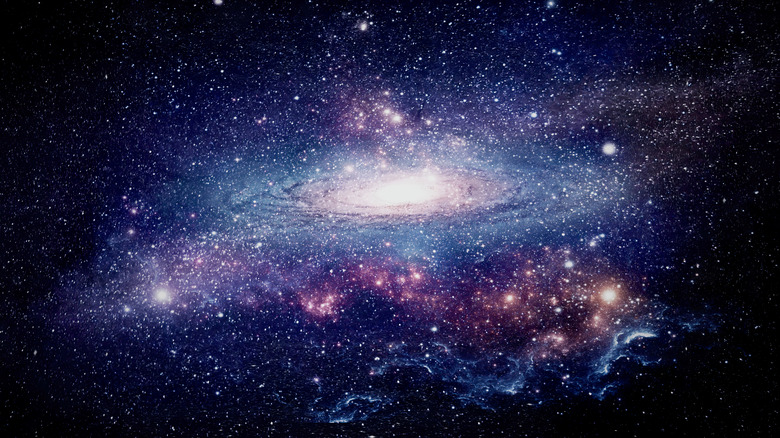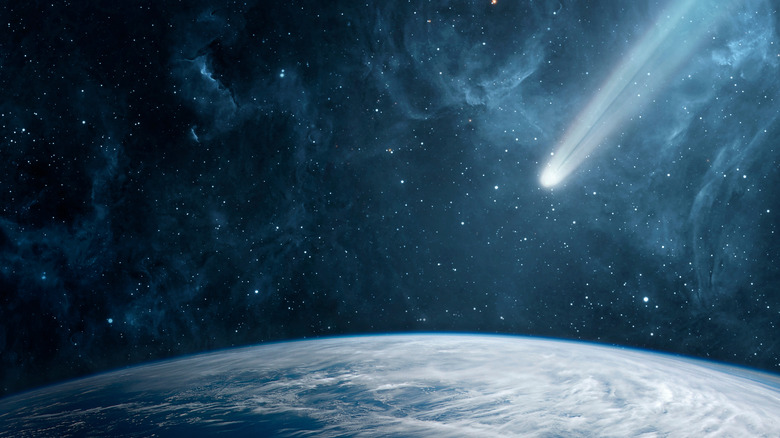Astronomers Keep Finding The Same Thing – The Building Blocks Of Life Might Have Come From Space
"The universe is a pretty big place. So if it's just us... seems like an awful waste of space," goes a line from the 1997 film "Contact." In the movie, Jodie Foster plays Dr. Ellie Arroway, a radio astronomer who discovers a bizarre signal from the star Vega, which eventually leads to her making contact with extraterrestrial life. Foster's character is inspired by real-life scientist Jill Tarter, a pioneering astronomer, so-called "alien hunter," and member of the Search for Extraterrestrial Intelligence (SETI) project. The effort has been ongoing for decades, but there hasn't been as big a breakthrough discovery as what Dr. Arroway achieved in the film. Still, space scientists strongly believe that there's life out there.
Aside from SETI, many other space projects have been looking for evidence of extraterrestrial life. The Galileo Project has been on the hunt for alien life using a combination of ground telescopes, AI, and other technologies. Other scientists have been studying the evolution of ancient microbes in hopes of finding links to extraterrestrial beings. At the same time, studies conducted on outer space material such as dust, comets, and asteroids, keep detecting the same thing — organic molecules. The presence of these compounds, which make up all the living things on Earth, hints strongly at how life on our planet began.
Did life on Earth start in space?
There's already a large trail of findings pointing to the presence of organic molecules outside of Earth. From space rock samples, comet gases during flybys, and even observations of the rings and chains coming from dying stars, there's more than enough evidence of carbon-containing compounds and even amino acids in space. So, does this mean that life on Earth may have started in space?
Although these findings suggest the interconnectedness of planets and solar systems, and how these organic molecules may have arrived on Earth via comets and meteorites, it doesn't prove anything about how life started on our planet. It shows that space may have the ingredients for life, but it still depends on a planet having the right conditions for the necessary biochemical processes to happen Our Earth, for example, may have been conducive enough for these organic molecules to thrive and start a literal life-changing evolution.
Of course, going by this theory, other planets could potentially go through the same process. Or maybe they already have, in faraway galaxies. But for now, human knowledge of life on other nearby planets remains limited. The strongest evidence of alien life on another planet so far points to the presence of two gases produced only by microbial organisms, like phytoplanktons, on the planet K2-18b, which is 124 light-years away. But even this is purely speculative, based on data from NASA's James Webb Space Telescope. Scientists cannot physically confirm if there are indeed microbial organisms in the sub-Neptune planet — but it's an intriguing prospect nonetheless.

